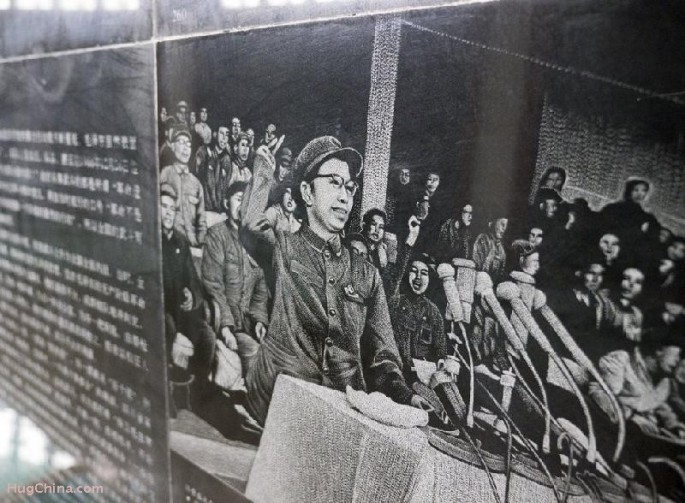China’s biggest record company on Tuesday has denied allegations that it has been leaking "national secrets" through its project of digitizing speeches recorded during the Cultural Revolution (1966-1976).
The project, which will digitize the content of 54 original master copies of speeches made by political figures during the Cultural Revolution, has already been made public at that time, according to a statement released by the China Record Corporation (CRC).
Cui Yongyuan, a former China Central Television host, posted on his Sina Weibo account on Monday that the CRC handed over the master copies, which he said "obviously involved national secrets," to a Sino-Japanese joint venture company for digitization.
Cui said that he had reported the case to the police by giving the official account of the Beijing Municipal Public Security Bureau.
As of press time, Cui's post has been reposted 7,100 times.
Photos posted along with the text showed that the files contain speeches of Jiang Qing, Mao Zedong's fourth wife and a major political figure during the Revolution.
CBM Audio Visual Co. Ltd., CRC's holding company, said that they were responsible for digitizing the recordings.
"Although two Japanese companies are also major shareholders, we don't have Japanese employees," a business director surnamed Wang with CBM Audio Visual told the Global Times on Wednesday.
"We've sent all the copies back to CRC after we finished digitalization," Wang said.
Cui claimed the project was in violation of China's laws regarding outsourcing documents for digitization.
Regulations on outsourcing digitization, issued by the State Archives Administration of China in January, state that authorized persons of institutions digitizing documents have to be registered in China, and that the shareholders must be Chinese citizens.
The CRC statement said that CBM's legal representative and employees are all Chinese, but did not mention the two Japanese shareholders.
According to Wang, the digitization of the recordings is part of a national project of building a digital database of China's old albums.
The project, which started in 2012, will digitize a total of 140,000 albums and audio files from the 1920s up to the 1990s, and is listed as a key national project in China's 12th Five-Year Plan, according to the CTC.
Zhang Zhiqiang, a lawyer of the Beijing Yixing Law Firm, said that CRC's shareholders are entitled to apply to check the documents, including the Japanese shareholders.
Beijing police have not responded to Cui's report as of press time.



























